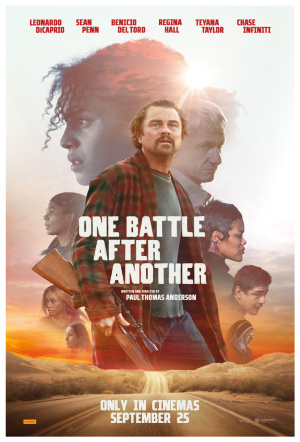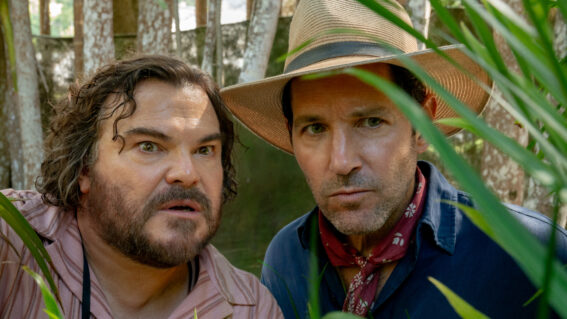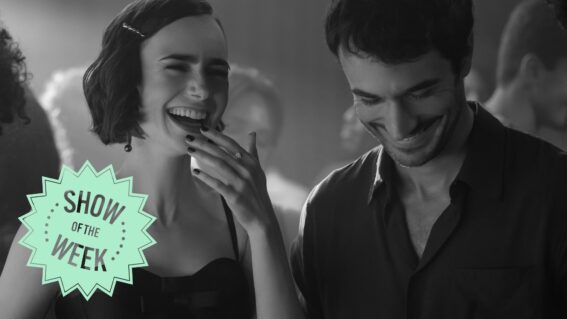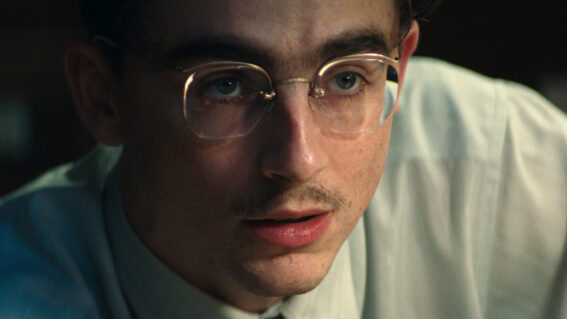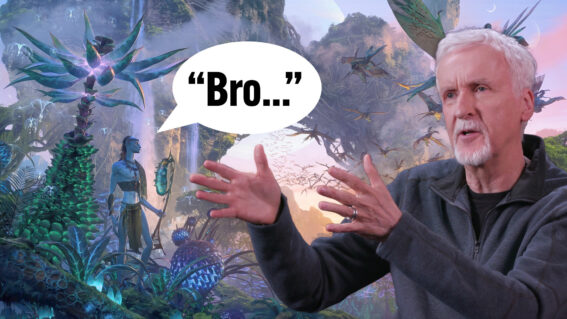The electric energy of One Battle After Another
Violent, funny, and unnervingly real, Paul Thomas Anderson’s exhilerating new film crafts a jittery vision of America unraveling.
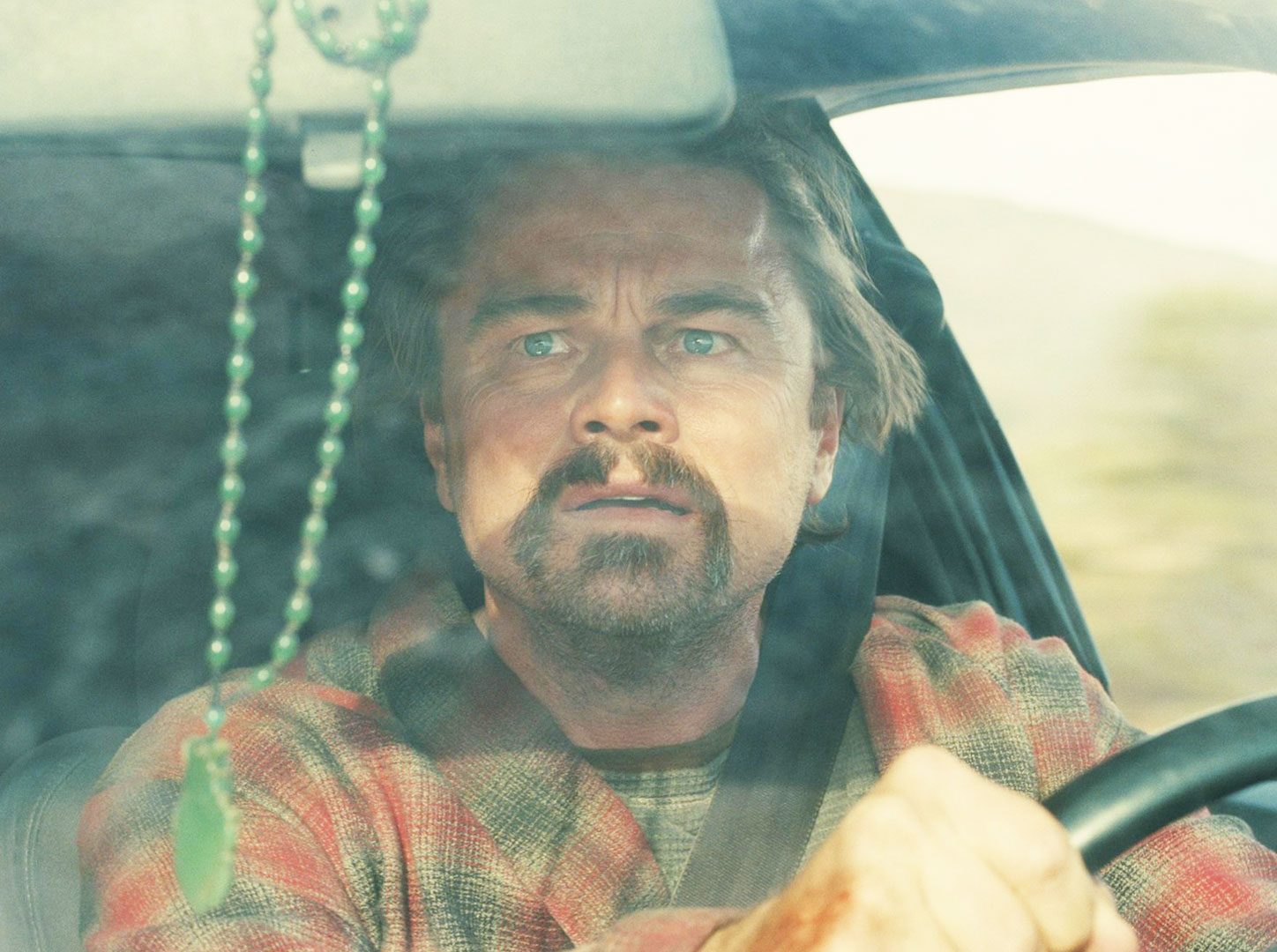
There’s an electric energy in Paul Thomas Anderson’s One Battle After Another—an exhilaratingly well-made, teeth-gnashing action thriller that unfolds on the ground, close to the gutter. A raw curbside aura is crucial to evoking the feeling that what we’re watching could happen—and, in some ways, is already happening—inside an America further down the track of dystopia and authoritarianism (spoiler alert: nobody made it great again).
Perhaps not as far gone as Alex Garland’s Civil War—another production forged in the fires of a flaming democracy, the bubbling cauldron of the “land of the free” now looking more like Dante’s Inferno. Or perhaps the world in One Battle After Another is equally woebegone, just observed from different angles. While Garland’s characters navigated a war-torn country on their journey towards Washington, guiding us through a travelogue from hell, Anderson’s narrative is centered around a father and teenage daughter—Leonardo DiCaprio’s Bob and Chase Infiniti’s Willa—who are separated in the direst of circumstances.
The film opens with claps of violent unrest from a group of revolutionaries to which Bob belongs, known as the French 75, who in political discourse would be considered the “extreme left” (and are actually extreme, not the imaginary “extreme left” routinely conjured by POTUS). The group’s motivations and end goals aren’t entirely clear: disenfranchisement obviously feeds into it, albeit of a concentrated and reactionary kind, less like Tyler Durden’s anarchists than the kids from How to Blow Up a Pipeline.
We meet one of the group’s leaders, Perfidia (Teyana Taylor), a true instigator and rebel—Bob is more of a follower—and a dangerous, perhaps doomed soul. When she shoots an injured bank security guard at point-blank range, we can sense a threshold has been crossed and her days are numbered. This moment triggers the first proper action scene, which is oomphy and edgy but over quickly—just a taste of things to come.
Another significant character introduced early on is Col. Steven J. Lockjaw, a military man played with a superbly strange, almost stilted eccentricity by Sean Penn. I won’t divulge the nature of his relationship with Perfidia; suffice to say that their interactions are crucial to the thrust of the plot, which jumps ahead 16 years. Bob has become a sozzled, booze and pot-soaked layabout, though he’s still a loving and attentive father, whose quiet existence is upended when a threat from the past resurfaces and suddenly puts Willa’s life in danger.
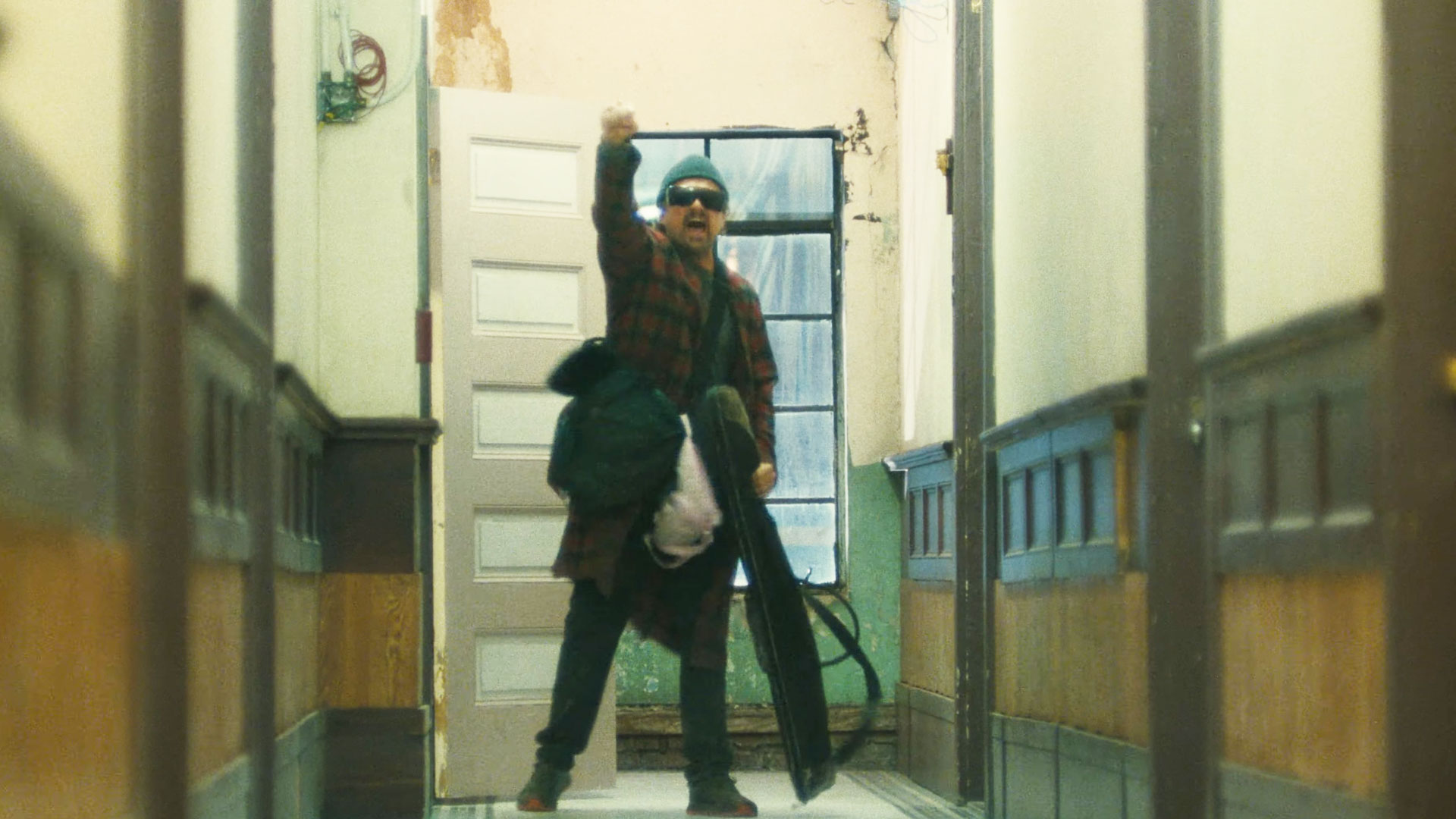
Part of the film’s genius is that it’s deliberately funny—both funny-weird and funny-ha-ha. Some of the comedy arises from Bob being clearly unprepared for heroism: he certainly doesn’t look the part, gallumphing around in a dressing gown and wraparound sunglasses, toking reefers and gulping down beer. He’s amusingly played by Leonardo DiCaprio, an actor whose Peter Pan-ishness is both a blessing and a curse, providing a boylike aura that can work against him. Anderson exploits DiCaprio’s youthful glow by playing with the idea of a man stuck inside his former self—who moved on from the past but never really came to terms with it—Leo’s sort-of middle-aged, sort-of young look now feeling thematically justified.
Humour also emerges from a plot thread involving a secret society of blue-blood extremists, who wield immense power and clout—a kind of white-nationalist version of the Stonecutters. The group’s goings-on are presented in sardonically-tinged scenes that, with their ring of absurd bureaucracy, recall Burn After Reading, but with a more chafing impact. None of these absurd elements take the edge off: the film is a jittery, white-knuckle ride, every molecule on the screen charged. When the action really starts to sizzle, it comes back to that aforementioned, intensely grounded energy, the film moving in circular and horizontal motions, pushing the air sideways.
Core to this energy is composer Jonny Greenwood’s at times very jazzy score—all that poking and prodding of piano keys creating a restless, anticipatory quality, like a simmering pot with its lid rattling. Anderson has made some great films (There Will Be Blood, Boogie Nights, Punch-Drunk Love) but never one that feels so damn twitchy and pressure-packed.





